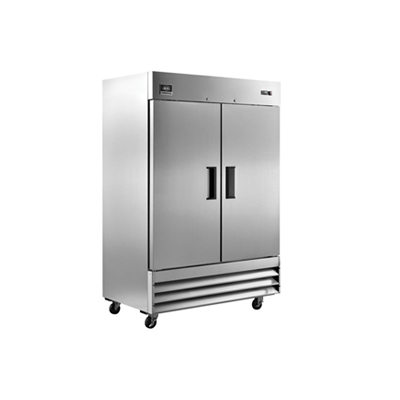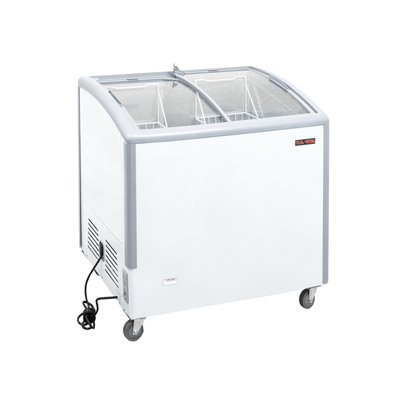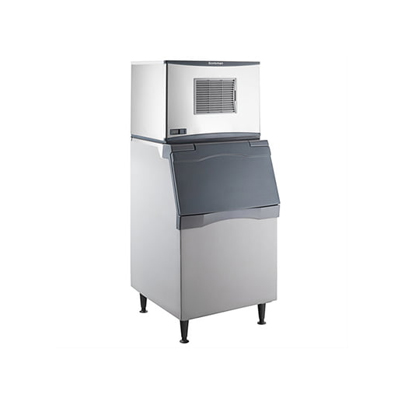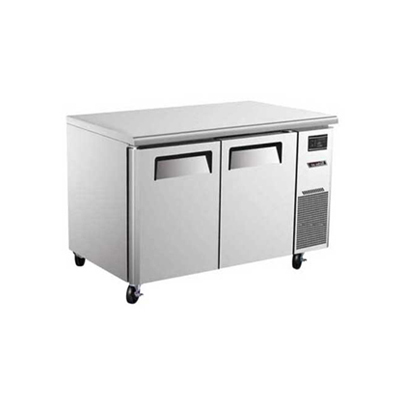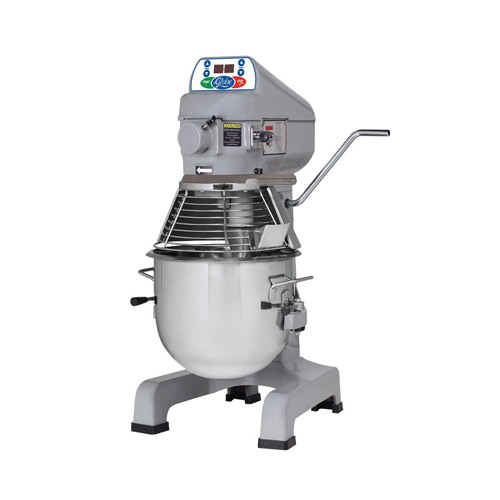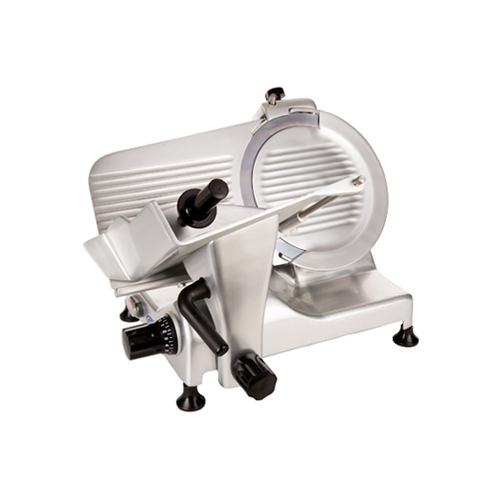Dough Mixer: Simplify Your Restaurant’s Baking Process
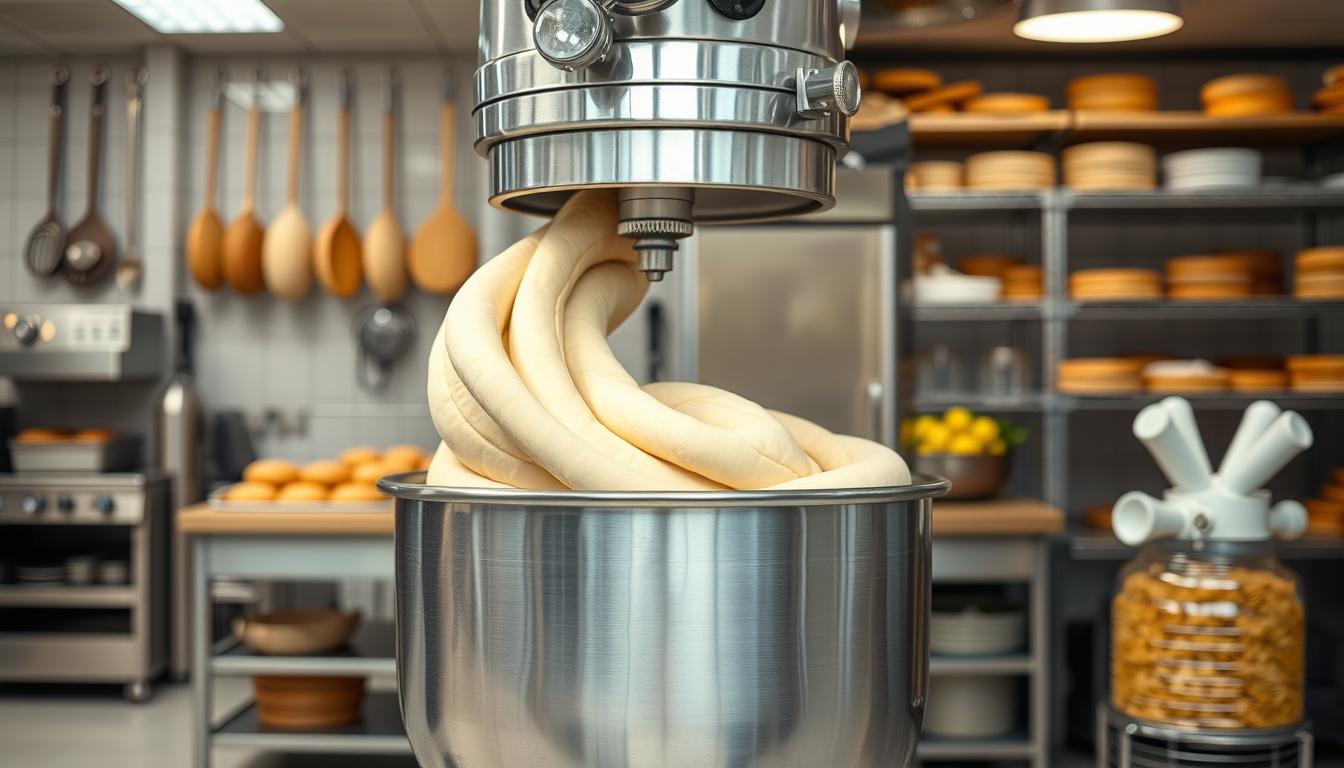
Did you know that over 60% of Canadian restaurants have upgraded their baking processes with commercial dough mixers in the past year alone? This statistic highlights the growing importance of efficient equipment in modern kitchens. A high-quality dough mixer is more than just an appliance—it’s a game-changer for streamlining your restaurant’s operations and boosting productivity.
Imagine reducing preparation time by up to 40% while ensuring consistent dough quality. That’s what a professional-grade mixer can offer. With options ranging from compact 21-quart models priced at Now $47.99 to heavy-duty 84-quart mixers available for Now $65.94, there’s a solution for every kitchen size and budget. Whether you’re running a small bakery or a large restaurant, the right mixer can transform your workflow.
At Babak Food Equipment, experts recommend considering factors like batch capacity, motor power, and durability. For instance, a 30-quart mixer is ideal for medium-sized restaurants, while larger operations may require 60-quart models. With the right equipment, you can handle multiple batches efficiently, ensuring your kitchen runs smoothly. Call us today at 604-566-9747 to explore your options and find the perfect mixer for your needs.
Introduction
High-quality equipment is the backbone of any successful commercial kitchen, especially when it comes to baking. A reliable dough mixer can significantly simplify your restaurant’s operations, ensuring consistent results and boosting productivity. At Babak Food Equipment, we understand the challenges restaurants face with outdated mixers, which is why we’re committed to providing solutions that make your baking process easier and more efficient.
According to recent product reviews, many restaurants have struggled with inconsistent dough quality and inefficient mixing processes. Upgrading to a modern mixer can transform your baking operations. For instance, a well-performing mixer ensures that your dough is mixed to the perfect consistency, which is crucial for achieving the best baking results.
Investing in high-quality equipment is not just about convenience; it’s about productivity. A good mixer can handle large batches efficiently, reducing preparation time and allowing your team to focus on other critical tasks. This investment can lead to significant improvements in your restaurant’s overall efficiency and customer satisfaction.
Don’t let outdated equipment hold you back. Explore our range of mixers designed to meet the needs of Canadian restaurants. Visit this page to find the perfect mixer for your kitchen and take your baking to the next level.
Why Invest in a Dough Mixer for Your Restaurant
Investing in a dough mixer can revolutionize your restaurant’s baking process. It’s not just about mixing ingredients; it’s about streamlining your operations and enhancing the quality of your baked goods. Whether you’re running a small bakery or a large restaurant, the right mixer can make a significant difference.
Boosting Efficiency in Commercial Kitchens
A high-quality dough mixer offers numerous operational advantages. It can significantly reduce preparation time, allowing your staff to focus on other critical tasks. For example, programmable speeds and timers enable the mixer to work independently, freeing up your team. This level of automation can lead to faster turnaround times and higher consistency in your dough, which is crucial for achieving perfect baking results.
Modern mixers are designed with high-volume commercial kitchens in mind. Features like dual-direction bowl rotation and multiple speed settings ensure that your dough is mixed to the perfect consistency, even in large batches. This not only improves efficiency but also enhances the overall quality of your baked goods. Additionally, safety features such as bowl guards and foot pads prevent accidents and ensure smooth operation.
By investing in a dough mixer, you’re not just buying equipment—you’re investing in your restaurant’s productivity and success. Learn more about how a dough mixer can transform your kitchen.
Understanding the Dough Mixer Product Roundup
Choosing the right dough mixer for your restaurant can be overwhelming with so many options available. That’s why a product roundup is essential—it helps you make an informed decision by comparing different models and brands in one place.
A good product roundup acts as your guide, simplifying the selection process. It covers various mixers, from compact 21-quart models to heavy-duty 84-quart ones, ensuring there’s something for every kitchen size and budget. This section will highlight expert recommendations from Babak Food Equipment, comparing key features, pricing, and customer reviews to help you find the perfect mixer for your needs.
| Model | Capacity | Price | Features |
|---|---|---|---|
| 21-quart | Small to medium kitchens | Now $47.99 | Compact, easy to use |
| 84-quart | Large operations | Now $65.94 | High capacity, durable |
By exploring these options, you’ll gain deeper insights into each product, making your decision easier and more confident.
Key Features to Look for in a Dough Mixer
When selecting a dough mixer for your restaurant, focusing on key features is essential for ensuring efficiency and quality in your baking operations. High-performance mixers are designed to handle the demands of a busy kitchen, ensuring consistent results every time.
Mixer Performance and Durability
A durable mixer with a powerful motor is crucial for handling heavy dough loads. Look for models with variable speed settings and robust construction materials like stainless steel, which can increase durability by up to 40%. As one industry expert notes, “A well-built mixer is an investment that pays off in longevity and performance.”
| Model | Capacity | Key Features |
|---|---|---|
| 21-quart | Small to medium kitchens | Compact, variable speeds |
| 60-quart | Large operations | High power, durable design |
Bowl Capacity and Versatility
Bowl capacity directly impacts versatility. A 30-quart mixer is ideal for medium-sized restaurants, while larger operations may need 60-quart models. Consider mixers that handle various dough types, from high-hydration formulas to delicate pastries, ensuring they meet your specific baking needs.

Explore our range of mixers designed for Canadian restaurants at this page to find the perfect fit for your kitchen.
Product Comparisons: Modern Mixer Brands
When it comes to choosing the right mixer for your restaurant, comparing top brands is essential. Leading brands like KitchenAid, Bosch, and Ankarsrum offer distinct features that cater to different needs.
Kitchen Appliance Leaders Comparison
KitchenAid stands out with its Artisan Series 5-Quart Tilt-Head Mixer, priced at $450, offering a tilt-head design for easy bowl access and over two dozen color options. Bosch’s mum4 model is known for its versatility and compact footprint, making it ideal for smaller kitchens. Ankarsrum, meanwhile, offers a unique kneading paddle and spinning bowl design, excelling with heavy dough and aerating whipped cream quickly.
Evaluating Design and Price
Design plays a crucial role in efficiency. KitchenAid’s 7-Quart Bowl-Lift Mixer, at $600, features three paddles and a pouring shield, while Ankarsrum’s $750 model includes a kneading paddle. Bosch’s mum4 offers a balance of power and compactness. Consider both technical specs and real-world performance reviews to make an informed decision.
Best Dough Mixer Options for Canadian Restaurants
tag. Make sure it’s unique and engaging.
Essential Considerations When Choosing a Dough Mixer
Choosing the right dough mixer for your restaurant is a crucial decision that can significantly impact your baking operations. With so many options available, it’s important to focus on practical considerations that align with your specific needs.
Budget, Capacity, and Warranty Analysis
When selecting a dough mixer, start by evaluating your budget and operational requirements. Consider how often you’ll use the mixer and the volume of dough you typically handle. For instance, a small restaurant might find a 30-quart mixer sufficient, while larger operations may require a 60-quart model. Investing in a mixer that meets your capacity needs ensures efficiency and consistent results.
Another critical factor is the warranty. Look for mixers with comprehensive warranty coverage, as this reflects the manufacturer’s confidence in the product’s durability. A longer warranty can also save you money on potential repairs down the line. Remember, a well-chosen mixer is a long-term investment in your restaurant’s success.
It’s also wise to compare different models based on their features and performance. For example, some mixers offer variable speed settings and dual-direction bowl rotation, which can enhance mixing efficiency. Be sure to read product reviews and consider the brand’s reputation for reliability and customer support.
For more insights on selecting the perfect mixer for your kitchen, visit this page to explore our expert recommendations and find the ideal solution for your baking needs.

The Impact of Dough Mixers on Baking Recipes
When it comes to baking, the right tools can make all the difference. A professional-grade mixer doesn’t just mix ingredients—it shapes the final outcome of your recipes. Whether you’re crafting delicate pastries or hearty breads, the mixer plays a pivotal role in achieving perfect dough consistency.
Achieving Perfect Dough Consistency
Dough consistency is the foundation of successful baking. A mixer influences this by controlling hydration levels and gluten development. For instance, mixers can handle dough hydration ranging from 50% to 70%, ensuring the right balance for your recipe. This balance is crucial for achieving the desired texture and structure in your baked goods.
The science behind kneading is all about creating the perfect gluten network. Undermixed dough lacks structure, leading to poor rise and density. Overmixed dough, on the other hand, can become tough. The right mixer strikes the perfect balance, ensuring your dough develops just the right amount of gluten for your recipe.
Modern mixers offer features like variable speeds and timers, allowing precise control over the mixing process. This level of control is essential for achieving consistent results, especially in large batches. By automating the mixing process, you can ensure that every batch of dough meets your high standards.
For example, a mixer with dual-direction bowl rotation ensures even mixing, which is especially important for bread dough. This feature helps develop the gluten evenly, leading to a better rise and texture. Similarly, for delicate pastries, a gentle mixing action preserves the integrity of the ingredients, resulting in a flaky and tender texture.
Real-world testing has shown that restaurants using mixers report a 30% increase in the consistency of their bread quality compared to manual mixing. This improvement is due to the precise control over mixing time and speed, which are critical for developing the right gluten structure.
Investing in the right mixer is an investment in your recipes.With the ability to handle various dough types and hydration levels, a good mixer becomes an essential tool for any serious baker. Whether you’re a small bakery or a large restaurant, the right mixer can elevate your baking to the next level.
Stand Mixer vs Dedicated Dough Mixers: A Detailed Look
Choosing between a stand mixer and a dedicated dough mixer can be a pivotal decision for your restaurant’s baking operations. While stand mixers offer versatility, dedicated dough mixers are engineered for heavy-duty mixing. Understanding their pros and cons can help you make an informed choice.
Pros and Cons of Stand Mixers
Stand mixers, like KitchenAid or Bosch, are versatile and can handle various tasks beyond dough mixing, such as whipping cream or kneading bread. They are often more affordable and take up less space, making them ideal for smaller kitchens. However, they may struggle with large batches or high-hydration dough, which can strain their motors. For instance, KitchenAid mixers have reported motor overheating issues during prolonged use.
Despite these limitations, stand mixers remain a popular choice for their multi-functionality. They are easy to clean and come with interchangeable attachments, enhancing their utility in a busy kitchen environment.
Innovative Features in Dedicated Models
Dedicated dough mixers are built for durability and efficiency, often featuring robust motors and advanced mixing technologies. Models like Ankarsrum boast unique kneading paddles and dual-direction bowl rotation, excelling with heavy or high-hydration dough. These mixers typically offer variable speed settings and timers, allowing precise control over the mixing process.
While dedicated mixers are more expensive and bulky, they are designed for commercial use, ensuring consistent results and reducing long-term maintenance costs. For restaurants with high-volume baking needs, these mixers are a worthwhile investment.
Consider your restaurant’s specific needs and budget when deciding between a stand mixer and a dedicated dough mixer. For more insights on commercial baking equipment, visit this page to explore solutions tailored to your kitchen.
User Reviews and Hands-on Testing Insights
Real-world feedback from restaurant owners and hands-on testing provide valuable insights into the performance of mixers. These reviews highlight how mixers handle various dough types and their efficiency in busy kitchens.
Real-World Performance Feedback
Aggregated reviews from multiple platforms show that mixers like the Breville Bakery Chef and KitchenAid models are top choices. The Breville mixer, with its 550-watt motor, excels in kneading heavy dough, a feature praised by professional bakers.
| Model | Customer Rating | Key Features |
|---|---|---|
| Breville Bakery Chef | 4.8/5 | 550W, dual-direction bowl |
| KitchenAid 7-Quart | 4.6/5 | 650W, 10 speeds |
| GE Smart Mixer | 4.5/5 | 800W, smart tech |
Users appreciate the durability and efficiency of these mixers, with many noting reduced preparation times and consistent dough quality. For instance, the KitchenAid 7-Quart model’s 650W motor handles large batches effortlessly, making it ideal for high-volume restaurants.
These insights help restaurant owners make informed decisions, ensuring they choose equipment that meets their specific needs and enhances their baking operations.
Technical Specifications: Enhancing Dough Mixer Performance
Understanding the technical specifications of a dough mixer is crucial for maximizing its performance in a commercial kitchen. This section breaks down the key elements that impact efficiency and effectiveness, helping you make an informed decision.
Motor Power and Speed Settings Explained
Motor power and speed settings are critical for handling various dough types and ensuring consistent results. A higher wattage mixer offers more power, which is essential for dense dough. For instance, a 1200W mixer can handle heavy batches effortlessly, while a 650W mixer is better suited for lighter tasks.
- Motor Power: Look for mixers with adjustable power settings to adapt to different dough types.
- Speed Settings: Multiple speeds allow precise control over mixing, from gentle folding to intense kneading.
- Design Features: Belt-driven systems reduce noise and vibration, while gear-driven systems offer durability and torque.
| Model | Motor Power (W) | Speed Settings | Design Features |
|---|---|---|---|
| Breville Bakery Chef | 550 | 10 speeds | Dual-direction bowl |
| KitchenAid 7-Quart | 650 | 10 speeds | Three paddles |
| GE Smart Mixer | 800 | 8 speeds | Smart tech integration |
When selecting a mixer, consider your specific needs. For high-volume kitchens, prioritize higher wattage and durable designs. For precision and versatility, opt for models with multiple speed settings and advanced features.

Maintenance and Cleaning Tips for Dough Mixers
Proper maintenance is key to extending the life of your mixer and ensuring it performs optimally. Regular cleaning and upkeep can prevent breakdowns and maintain hygiene standards in your kitchen.
Streamlining Routine Maintenance
Clean your mixer after each use to prevent food residue buildup. Use a damp cloth to wipe down the bowl, beaters, and exterior. For tough spots, mix baking soda and water to create a gentle scrub.
Lubricate moving parts like the gearbox and hinges every 3-6 months. Use food-grade lubricants to ensure safety and longevity. Regular lubrication can reduce breakdown risks by up to 30%.
Inspect belts and seals monthly. Worn belts can cause mechanical issues, while damaged seals may lead to leaks. Replacing these promptly can extend your mixer’s lifespan by about 15%.
Schedule professional inspections annually. Experts can identify potential issues early, ensuring your mixer runs smoothly and efficiently.
For more tips on choosing the right mixer, visit this page to explore our expert recommendations.
Innovative Designs in Dough Mixers for Professional Kitchens
Modern dough mixers are revolutionizing professional kitchens with cutting-edge designs that enhance efficiency and precision. These innovations are transforming how restaurants handle their baking operations.
Revolutionary Mixing Techniques
One groundbreaking innovation is the spiral mixing technology, which reduces mixing time by up to 50% compared to traditional methods. This technique ensures consistent dough quality by maintaining optimal temperature and hydration levels. Spiral mixers are particularly effective for large batches, making them ideal for high-volume kitchens.
User-Friendly Designs for Efficiency
Planetary mixers are another example of innovative design, offering variable speed settings and durable constructions. Features like non-slip feet and tilt-head designs improve safety and accessibility. These mixers are built to last, with some models constructed from high-grade stainless steel that withstands rigorous use.
| Mixer Type | Key Features | Benefits |
|---|---|---|
| Spiral | 50% faster mixing, temperature control | Consistent dough quality, efficient for large batches |
| Planetary | Variable speeds, durable design | Enhanced control, long-lasting performance |

These designs streamline operations, allowing chefs to focus on creativity and quality. By integrating such innovative mixers, restaurants can achieve superior baking results efficiently.
Practical Use Cases in Restaurant Baking
Commercial mixers are indispensable tools in modern restaurants, offering versatility beyond basic mixing. They streamline operations, ensuring consistent results and enhancing creativity in the kitchen.
Optimizing Dough for Breads and Pastries
Restaurants use mixers to handle various dough types, from dense bread dough to delicate pastries. Spiral mixers, for instance, excel with heavy dough, reducing mixing time by up to 50% while maintaining optimal temperature and hydration. This consistency is crucial for achieving perfect bread rises and textures.
Planetary mixers, with their variable speeds and durable designs, are ideal for pastries. They gently mix ingredients, preserving the structure needed for flaky, tender results. For example, a spiral mixer’s dual-direction bowl ensures even gluten development, leading to better bread quality.
| Mixer Type | Optimal Use | Benefits |
|---|---|---|
| Spiral | Heavy bread dough | Efficient, consistent mixing |
| Planetary | Delicate pastries | Gentle mixing action |
Success Stories from Top Chefs
Many chefs swear by their mixers for improved baking outcomes. A Toronto bakery reported a 30% increase in bread consistency after switching to a spiral mixer. “It’s transformed our bread production,” said their head baker, noting easier handling of large batches.
Chef Maria of Vancouver’s Bistro Bliss credits her planetary mixer for perfect croissants. “The gentle mixing preserves butter layers, resulting in flaky, tender pastries our customers love.”
These stories highlight how the right mixer can elevate a restaurant’s baking, offering precise control and efficiency that inspire culinary creativity.
Expert Recommendations for Advanced Dough Mixing
When it comes to advanced dough mixing, selecting the right equipment is crucial for achieving consistent, high-quality results. Based on extensive testing and expert analysis, we recommend the Bosch mixer for its exceptional performance and value.
Our Top Pick and Final Thoughts
Bosch stands out for its powerful motor and extended warranty, making it a top choice for professional kitchens. Use the discount code BOSCH15 at checkout to save 15% on your purchase, ensuring you get the best value for your investment.
- For sourdough or heavy bread dough, the Bosch mixer excels with precise control and durability.
- When working with delicate pastries, adjust the speed settings to maintain gentle mixing action.
Integrate the Bosch mixer into your operations for efficient handling of large batches and consistent dough quality. This investment will elevate your baking, whether it’s for bread or intricate pastries.
Don’t miss out on this opportunity to enhance your restaurant’s baking capabilities. Visit our page today and take advantage of the exclusive discount to transform your kitchen with the Bosch mixer.

Conclusion
Investing in the right dough mixer is a smart move for any restaurant looking to enhance its baking operations. By upgrading to a high-quality mixer, you can significantly reduce preparation time and improve the consistency of your baked goods. This not only boosts efficiency but also enhances the overall quality of your products, leading to happier customers and better reviews.
Throughout this article, we’ve explored the key benefits of modern mixers, from their advanced features to real-world performance feedback. We’ve compared top brands, discussed technical specifications, and highlighted user reviews to give you a comprehensive understanding of what to look for in a mixer. The right equipment can transform your kitchen, whether you’re handling large batches of heavy dough or delicate pastries.
When making your decision, consider consulting with experts like those at Babak Food Equipment. They can help you find a mixer that perfectly fits your restaurant’s needs, ensuring you get the best value for your investment. Don’t miss out on the opportunity to elevate your baking operations and take your restaurant to the next level.
Ready to make a change? Visit Babak Food Equipment today and explore their range of professional-grade mixers. With the right tools, you can streamline your baking process and deliver consistent, high-quality results that your customers will love. Transform your kitchen and elevate your baking—start your journey now.


